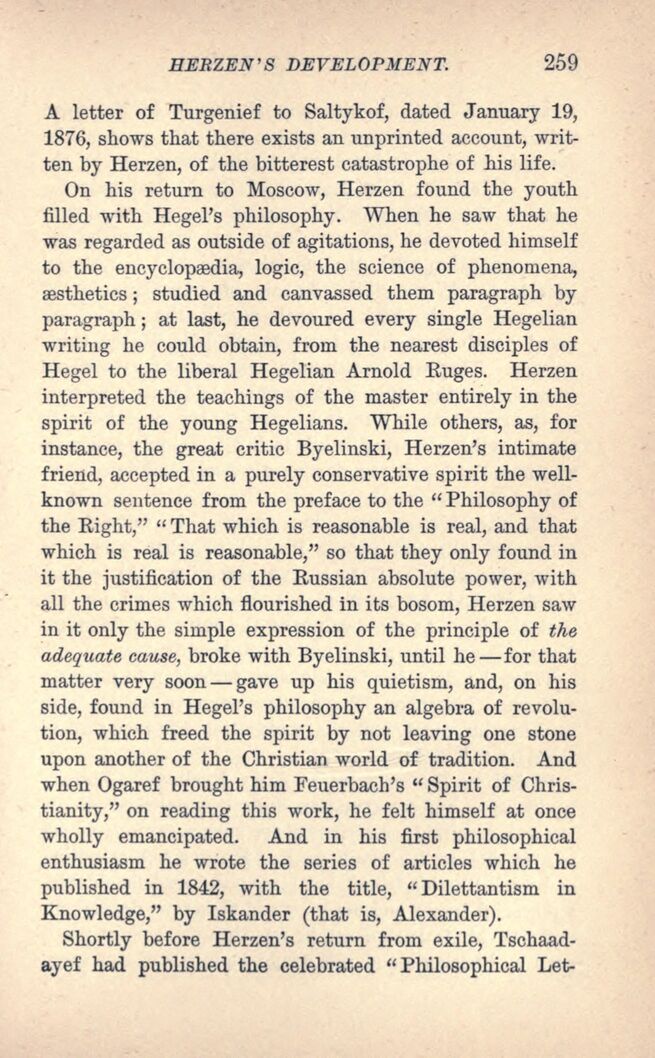
Full resolution (JPEG) - On this page / på denna sida - Impressions of Russian Literature - IV

<< prev. page << föreg. sida << >> nästa sida >> next page >>
Below is the raw OCR text
from the above scanned image.
Do you see an error? Proofread the page now!
Här nedan syns maskintolkade texten från faksimilbilden ovan.
Ser du något fel? Korrekturläs sidan nu!
This page has been proofread at least once.
(diff)
(history)
Denna sida har korrekturlästs minst en gång.
(skillnad)
(historik)
A letter of Turgenief to Saltykof, dated January 19,
1876, shows that there exists an unprinted account,
written by Herzen, of the bitterest catastrophe of his life.
On his return to Moscow, Herzen found the youth
filled with Hegel’s philosophy. When he saw that he
was regarded as outside of agitations, he devoted himself
to the encyclopædia, logic, the science of phenomena,
æsthetics; studied and canvassed them paragraph by
paragraph; at last, he devoured every single Hegelian
writing he could obtain, from the nearest disciples of
Hegel to the liberal Hegelian Arnold Ruges. Herzen
interpreted the teachings of the master entirely in the
spirit of the young Hegelians. While others, as, for
instance, the great critic Byelinski, Herzen’s intimate
friend, accepted in a purely conservative spirit the
well-known sentence from the preface to the “Philosophy of
the Right,” “That which is reasonable is real, and that
which is real is reasonable,” so that they only found in
it the justification of the Russian absolute power, with
all the crimes which flourished in its bosom, Herzen saw
in it only the simple expression of the principle of the
adequate cause, broke with Byelinski, until he — for that
matter very soon — gave up his quietism, and, on his
side, found in Hegel’s philosophy an algebra of
revolution, which freed the spirit by not leaving one stone
upon another of the Christian world of tradition. And
when Ogaref brought him Feuerbach’s “Spirit of
Christianity,” on reading this work, he felt himself at once
wholly emancipated. And in his first philosophical
enthusiasm he wrote the series of articles which he
published in 1842, with the title, “Dilettantism in
Knowledge,” by Iskander (that is, Alexander).
Shortly before Herzen’s return from exile, Tschaadayef
had published the celebrated “Philosophical
<< prev. page << föreg. sida << >> nästa sida >> next page >>